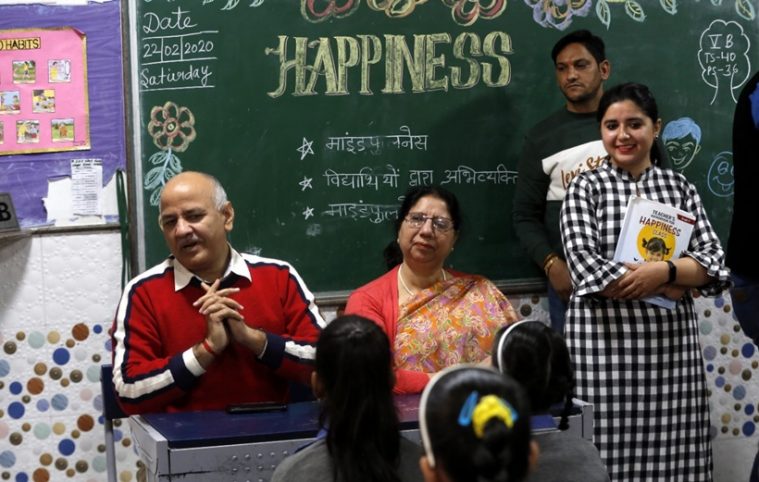Note4Students
From UPSC perspective, the following things are important :
Prelims level: Happiness Curriculum
Mains level: Happiness Curriculum and its significance

On the upcoming visit to India, US President Trump will visit a Delhi government school, where they will attend a happiness curriculum class.
What is Delhi’s ‘happiness curriculum’?
- The curriculum calls for schools in India to promote development in cognition, language, literacy, numeracy and the arts along with addressing the well-being and happiness of students.
- It further says that future citizens need to be “mindful, aware, awakened, empathetic, firmly rooted in their identity…” based on the premise that education has a larger purpose, which cannot be in isolation from the “dire needs” of today’s society.
- For the evaluation, no examinations are conducted, neither will marks be awarded.
- The assessment under this curriculum is qualitative, focusing on the “process rather than the outcome” and noting that each student’s journey is unique and different.
Objectives of the curriculum
The objectives of this curriculum include:
- developing self-awareness and mindfulness,
- inculcating skills of critical thinking and inquiry,
- enabling learners to communicate effectively and
- helping learners to apply life skills to deal with stressful and conflicting situations around them
Learning outcomes of this curriculum
The learning outcomes of this curriculum are spread across four categories:
- becoming mindful and attentive (developing increased levels of self-awareness, developing active listening, remaining in the present);
- developing critical thinking and reflection (developing strong abilities to reflect on one’s own thoughts and behaviours, thinking beyond stereotypes and assumptions);
- developing social-emotional skills (demonstrating empathy, coping with anxiety and stress, developing better communication skills) and
- developing a confident and pleasant personality (developing a balanced outlook on daily life reflecting self-confidence, becoming responsible and reflecting awareness towards cleanliness, health and hygiene).
How is the curriculum implemented?
- The curriculum is designed for students of classes nursery through the eighth standard.
- Group 1 consists of students in nursery and KG, who have bi-weekly classes (45 minutes each for one session, which is supervised by a teacher) involving mindfulness activities and exercise.
- Children between classes 1-2 attend classes on weekdays, which involves mindfulness activities and exercises along with taking up reflective questions.
- The second group comprises students from classes 3-5 and the third group is comprised of students from classes 6-8 who apart from the aforementioned activities, take part in self-expression and reflect on their behavioural changes.
Get an IAS/IPS ranker as your 1: 1 personal mentor for UPSC 2024
